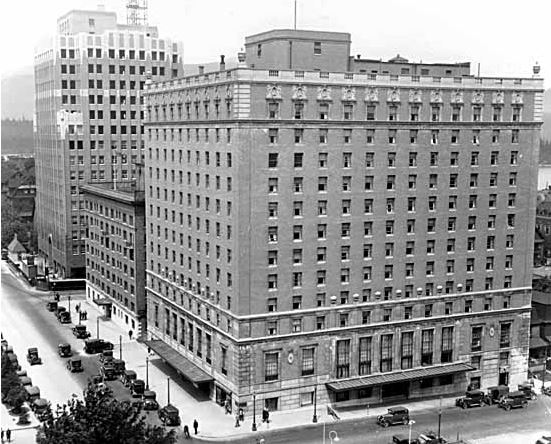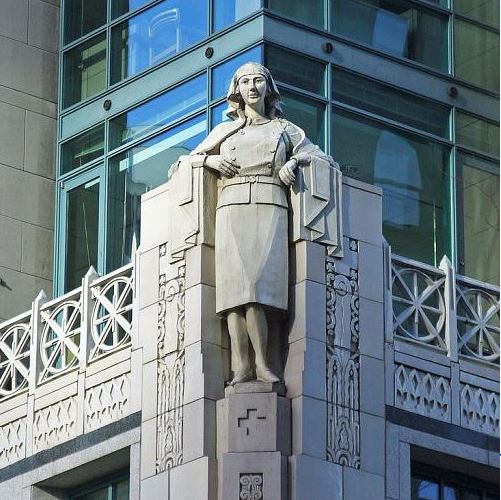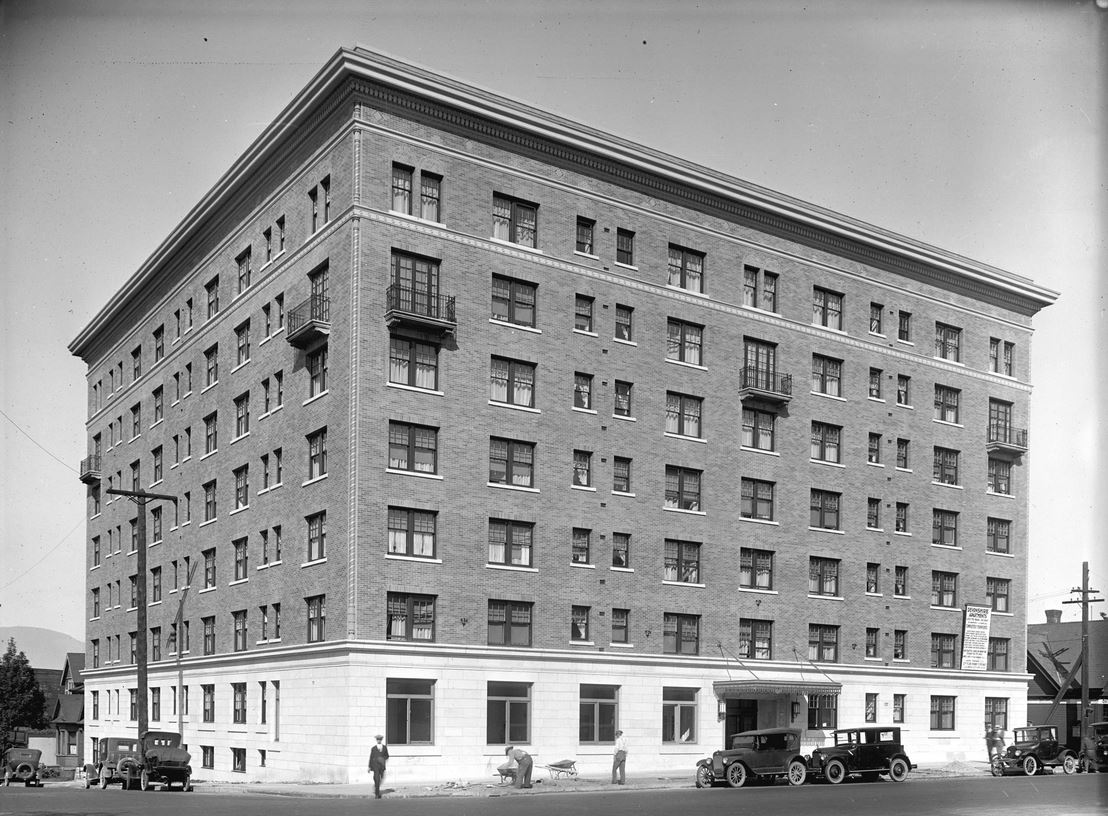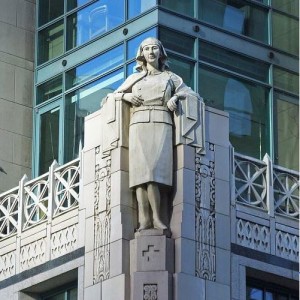On May 28, 1989, we blew up the Georgia Medical-Dental Centre, a building on West Georgia designed by McCarter & Nairne, the same architects behind the Marine and the Devonshire Apartments.* What were we thinking?
The Devonshire was first, designed as an apartment building in 1924. Next came the 15-storey art deco medical building. The Marine Building was completed in 1930—the only one left standing.

What were we thinking?
As this more recent photo shows, the HSBC Building now sits where the elegant Devonshire Hotel used to be. The GMDB was blown up or perhaps blown down is more accurate—to make way for the twenty-three-storey Cathedral Place.

Paul Merrick, designed Cathedral Place, renovated the Marine Building, the Orpheum Theatre, and converted the old BC Hydro Building to the Electra. I quite like Cathedral Place. It’s nicely tiered, the roof fits in with the Hotel Vancouver across the street, and it even has a few nurses, gargoyles and lions pasted about as a reminder of the former building. Everyone over 35 likely remembers the three nurses in their starchy World War 1 uniforms looking down from their 11th storey parapets. Known as the Rhea Sisters, the terra-cotta statues weighed several tonnes each. Later restored, the nurses are part of the Technology Enterprise Facility building at UBC.
But here’s a thought. Instead of honouring a heritage building by sticking fibreglass casts on a new building, why not keep the original one! The Georgia Medical-Dental Building was only sixty after all—hardly old enough for its unseemly demise, but old enough to represent a significant part of our history.

The Devonshire:
I never saw the Devonshire, but I love one of its stories. According to newspaper reports, after being kicked out of the snotty Hotel Vancouver in 1951, Louis Armstrong and his All Stars walked across the street and stayed at the Devonshire. Walter Fred Evans, a one-time member of the Vancouver Symphony Orchestra built the Devonshire, and supposedly Duke Ellington, Lena Horne and the Mills Brothers wouldn’t stay anywhere else.

* McCarter & Nairne also designed the Patricia Hotel, 403 East Hastings; Spencer’s Department Store (now SFU at Harbour Centre); the Livestock Building at the PNE, and the General Post Office on West Georgia.
For more posts see: Our Missing Heritage
© All rights reserved. Unless otherwise indicated, all blog content copyright Eve Lazarus.



